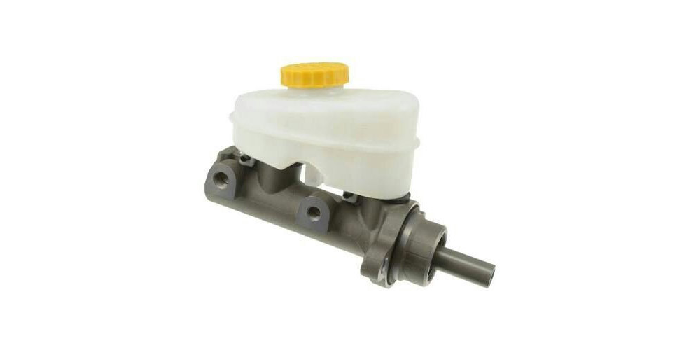Find Your Car Parts Instantly
- Best Price Guarantee Buy with confidence because you aren't getting a better price than this.
- Free Shipping Enjoy the luxury of free shipping on orders above $299.
- A Grade Quality Used Car Parts
Avail the best OEM Auto parts & components that are just as new - Our Friendly Parts Specialist will get you what you need !
Brake Master Cylinder

The brake master cylinder is a component in your car’s braking system that drives the pressure generated by the brake pedal to the braking mechanism at your vehicles’ wheels. It’s essentially the heart of your car’s brake system.
When you press down on the brake pedal, that force pushes a piston through the brake cylinder, converting the force into hydraulic pressure.
This pressure pumps hydraulic fluid through the brake lines, transmitting pressure to a secondary cylinder at each wheel’s braking mechanism.
The secondary cylinders drive the caliper piston to engage the brake calipers in disc brakes (the wheel cylinder in drum brakes). This action then goes on to stop the wheel.
The clutch system in manual cars also employs master cylinders, but they’re not the same kind as brake master cylinders.
How The Master Cylinder Influences Braking Performance
The master cylinder bore diameter is an essential factor influencing braking performance.
A change in the cylinder diameter will affect how the brake pedal feels to you and the brake pressure that’s applied.
If the cylinder bore diameter is too large, it will create a:
Hard brake pedal — where you’ll need to exert more effort to press the pedal
Short stroke — the brake pedal doesn’t travel far enough to generate enough braking pressure
Because of this, you could end up with a jumpy car, as you’ll have to tap the brakes hard (due to the high resistance), and the brakes will engage too fast.
If the cylinder bore size is too small, it will have a:
Soft brake pedal — where less effort is needed to press the brake pedal
Long stroke — the brake pedal needs to be pressed down all the way to create braking pressure
You’ll feel less resistance on the pedal, but you’ll be pressing down farther to get the brakes to work. This is not a great scenario in a traffic jam or if you need to make a quick stop.
Note: Drum brakes require less pressure, so the master cylinder for drum brakes is usually smaller. They typically have a one-way residual pressure valve. The residual valve helps maintain a bit of pressure in each brake line, so the drum brakes can engage faster.